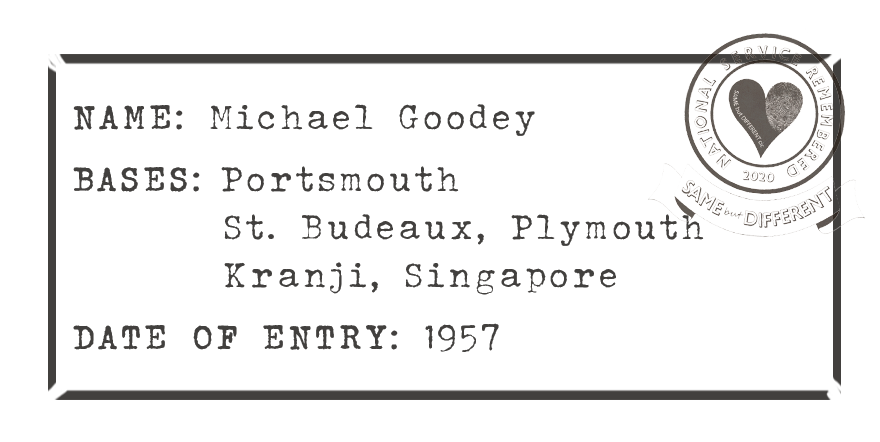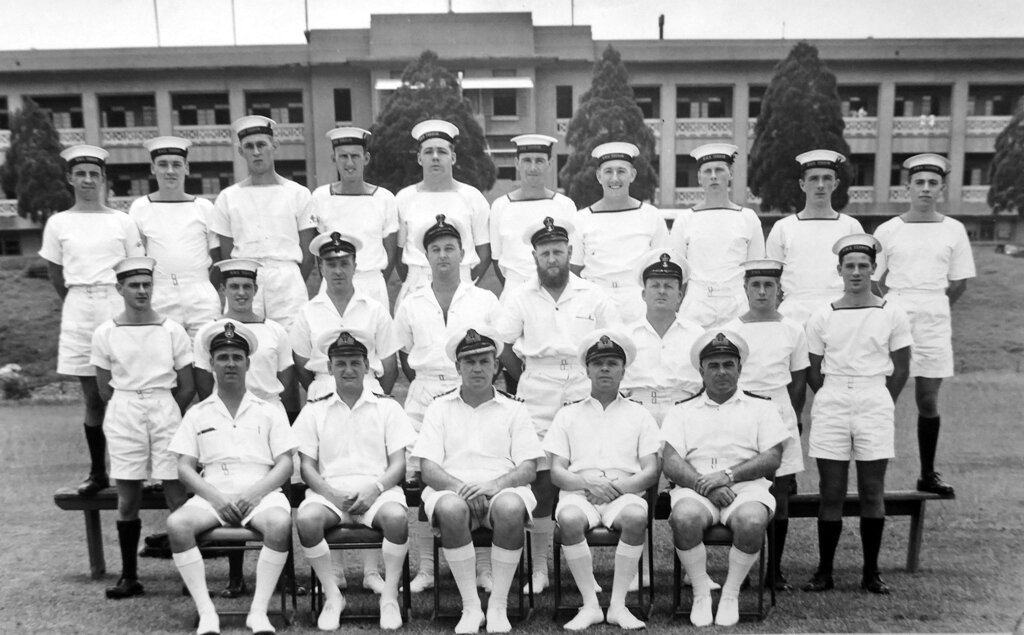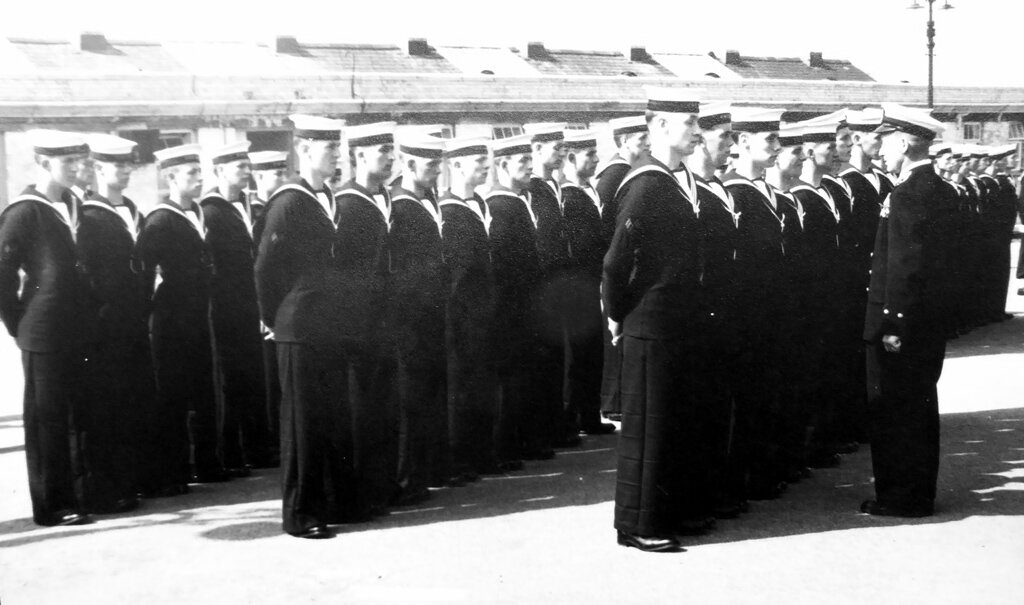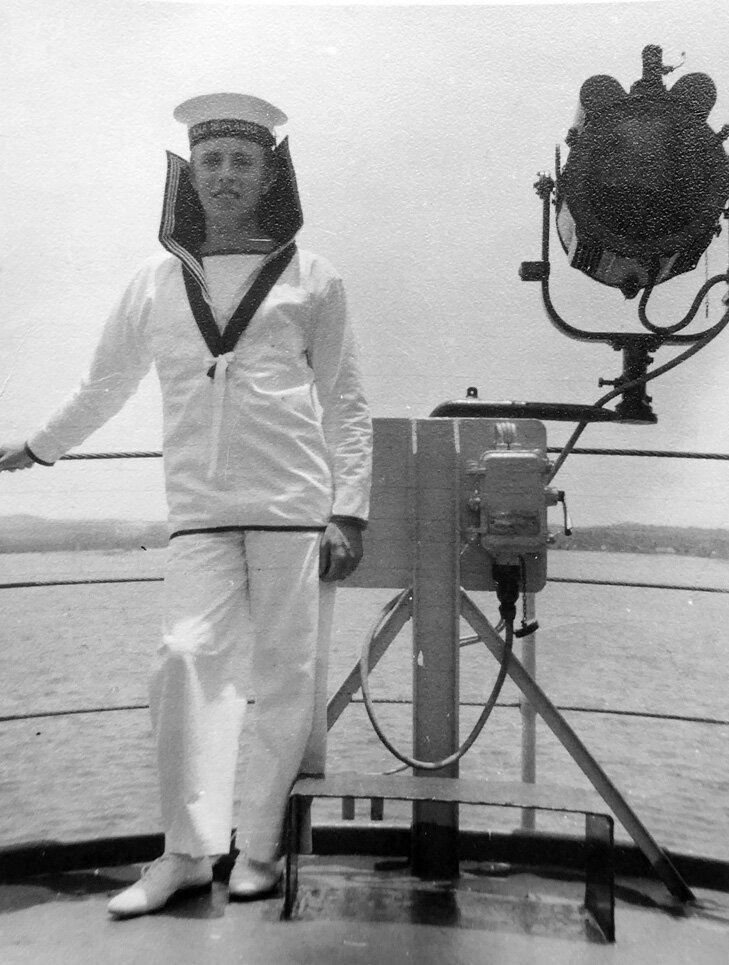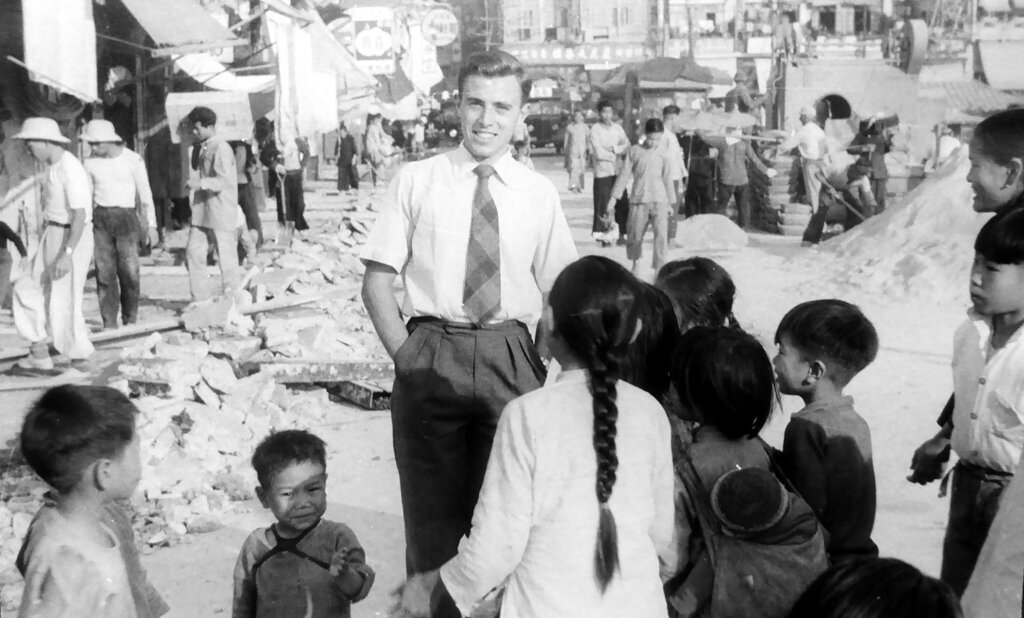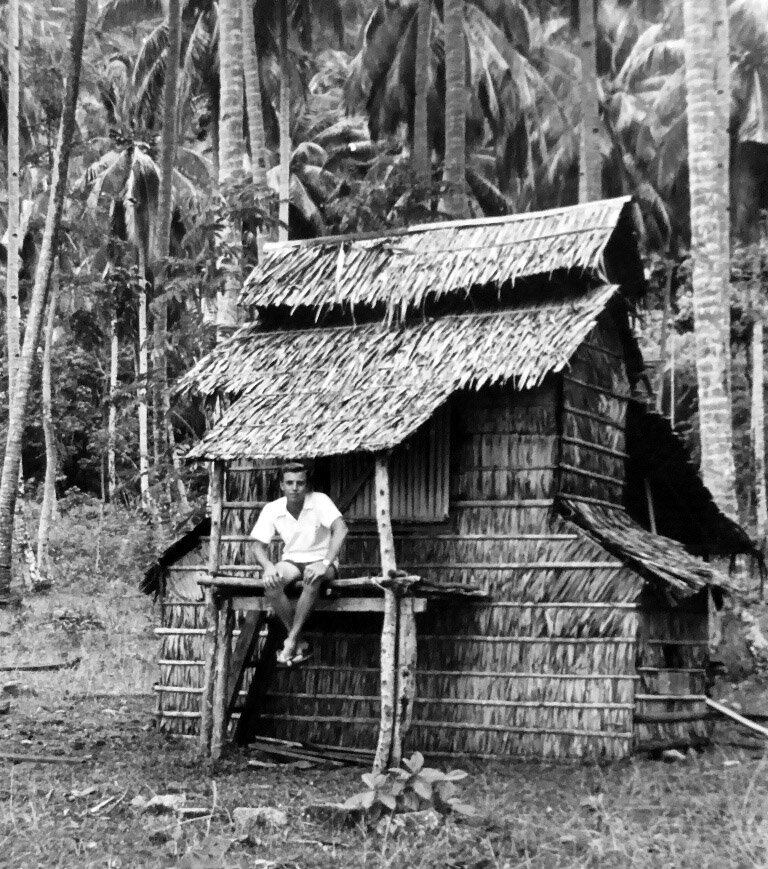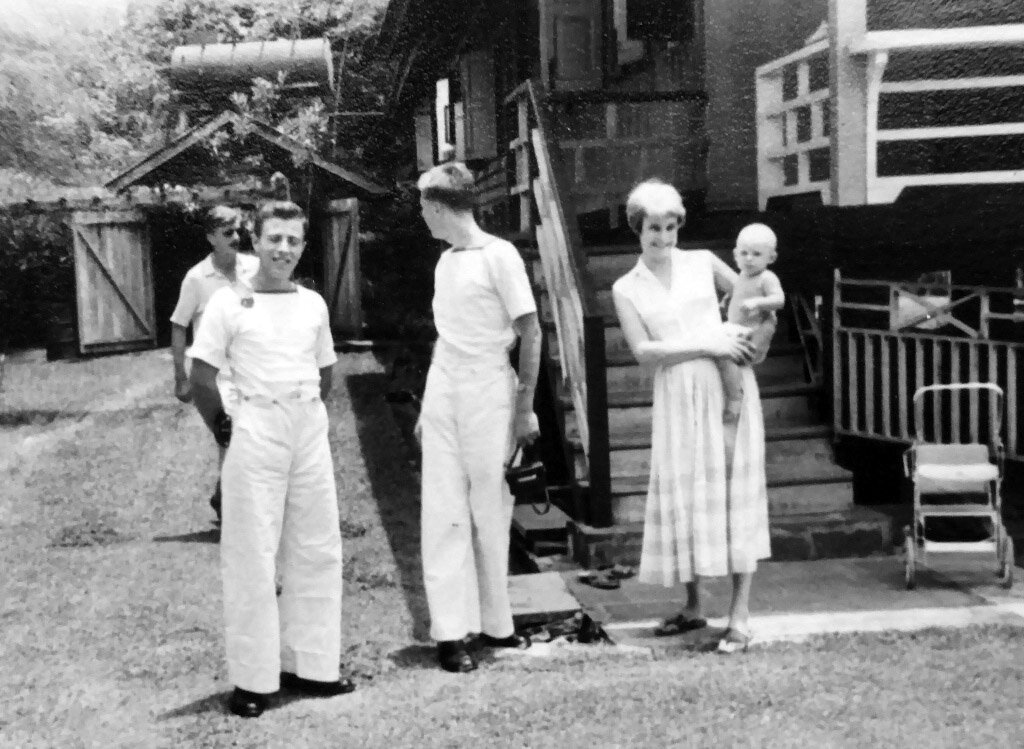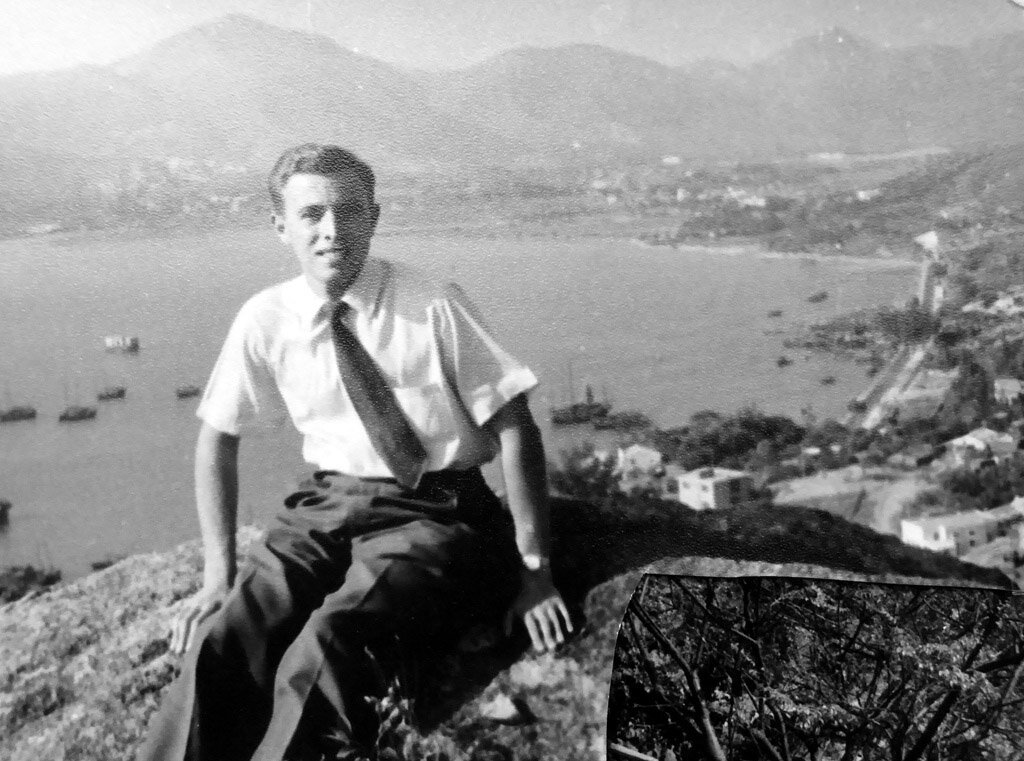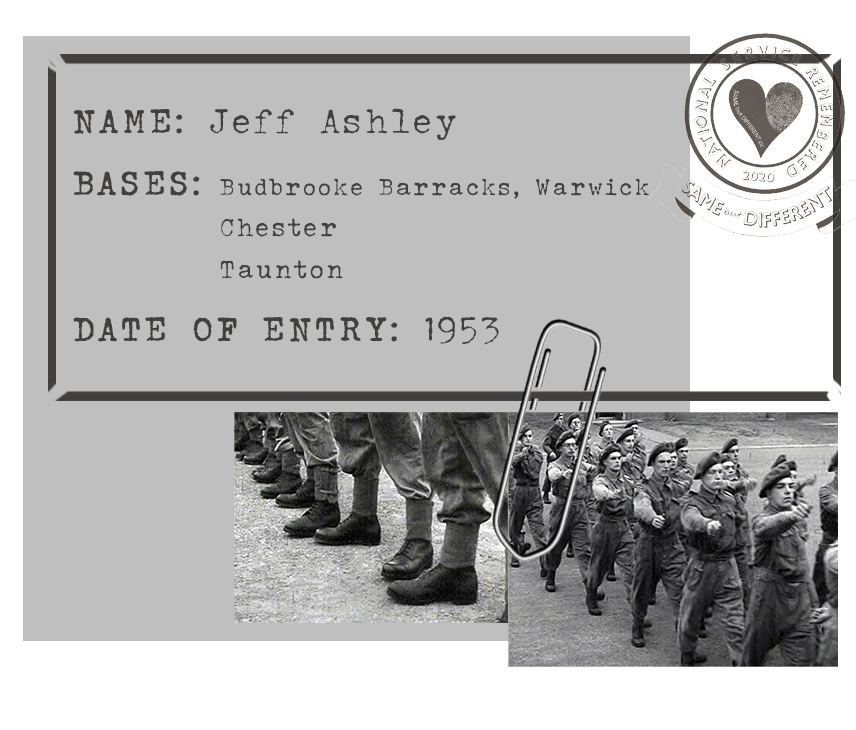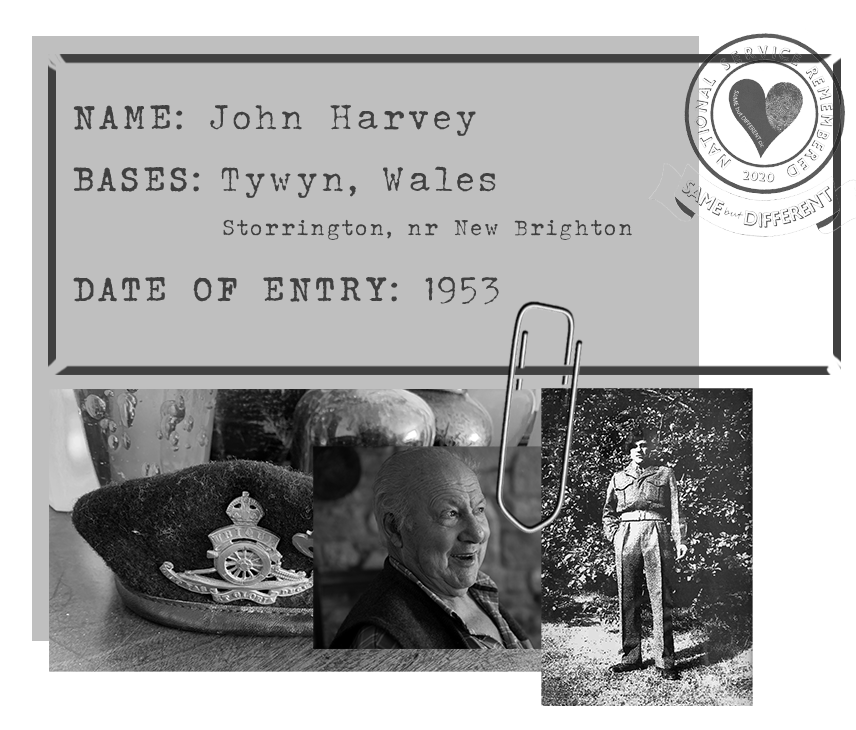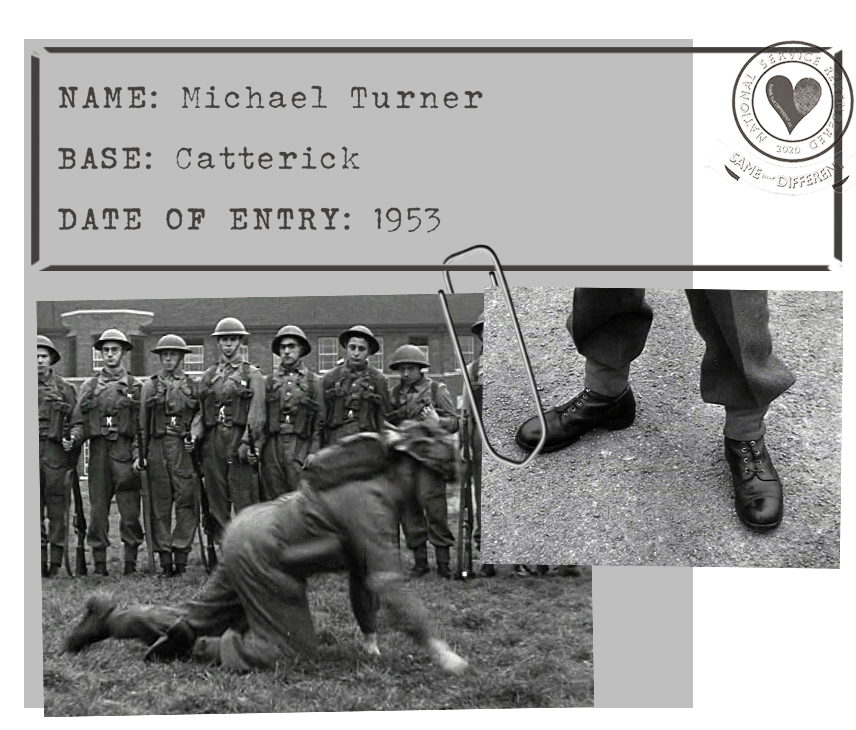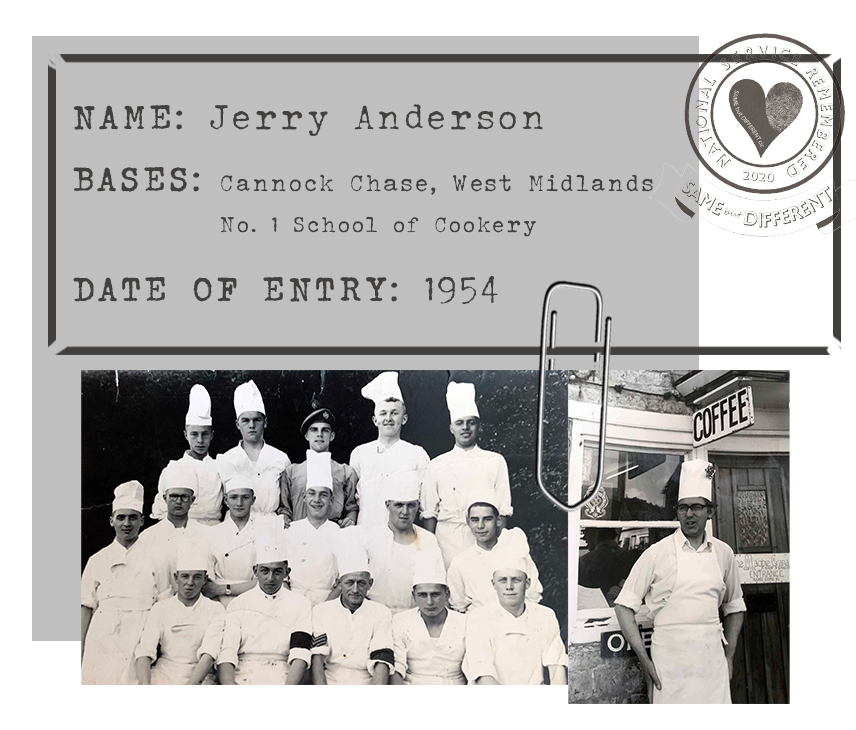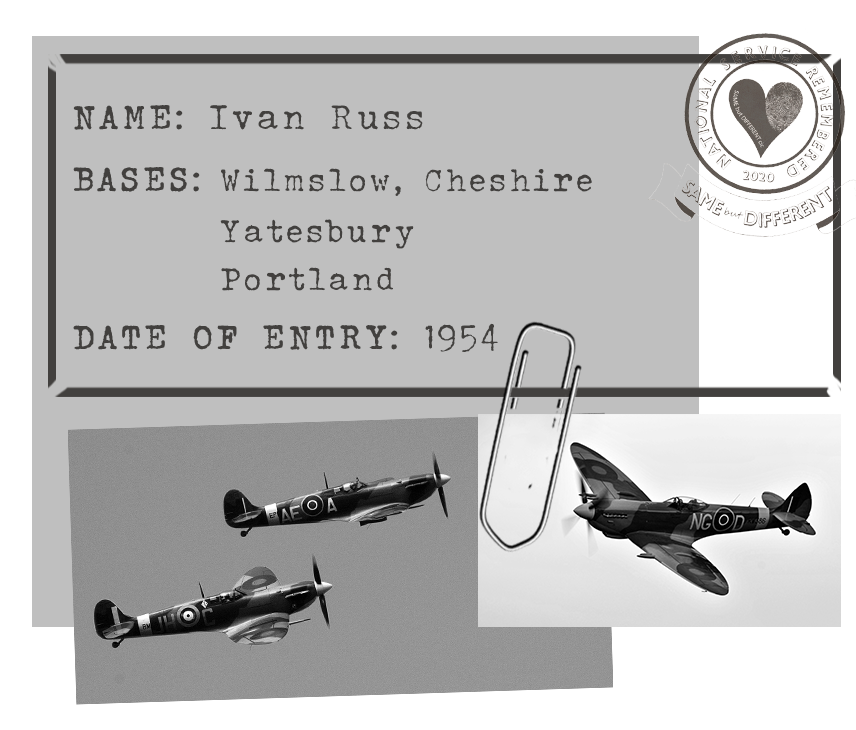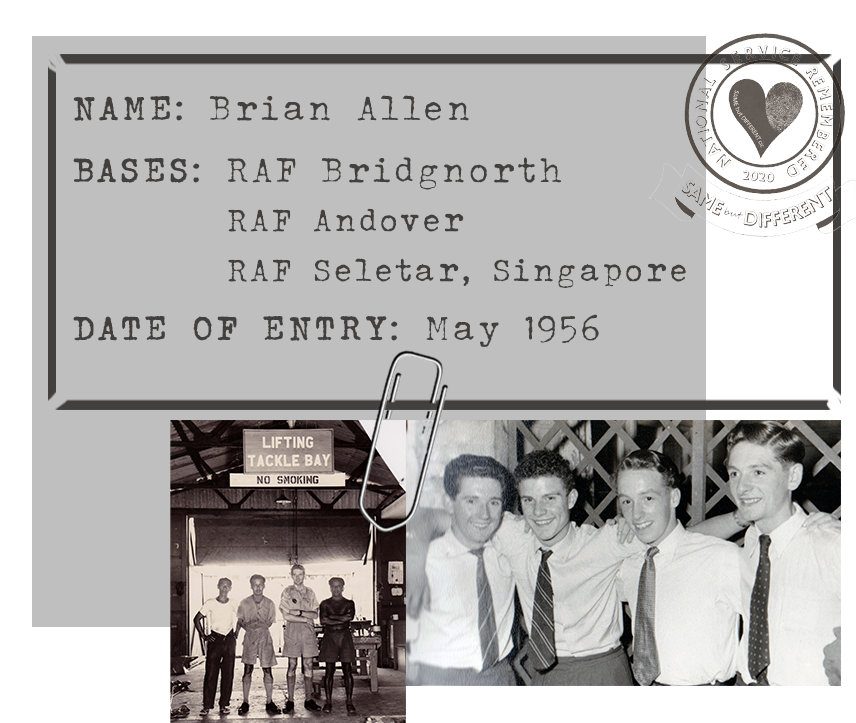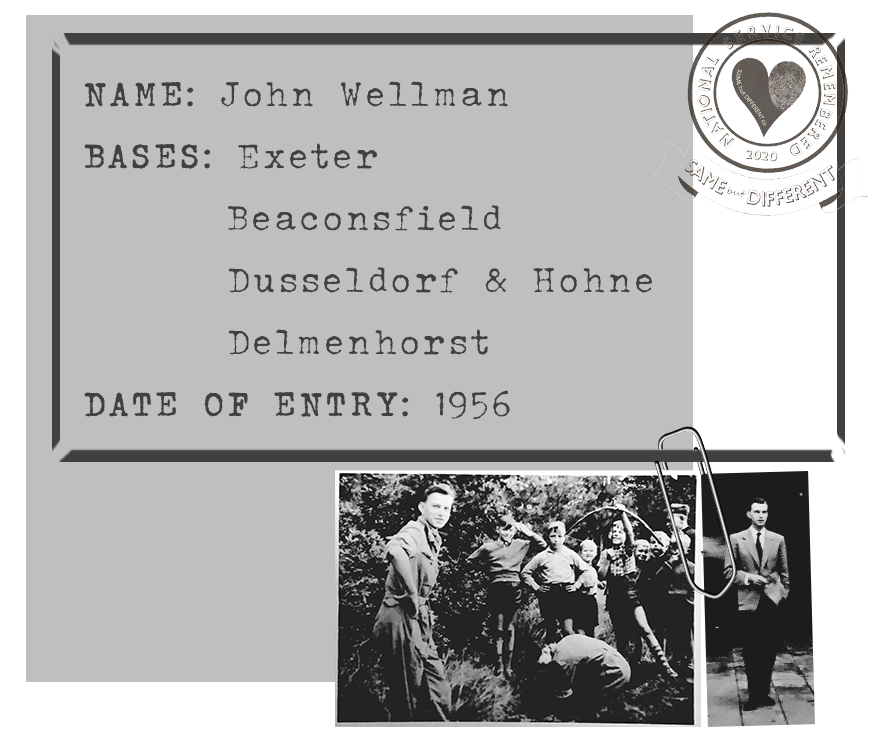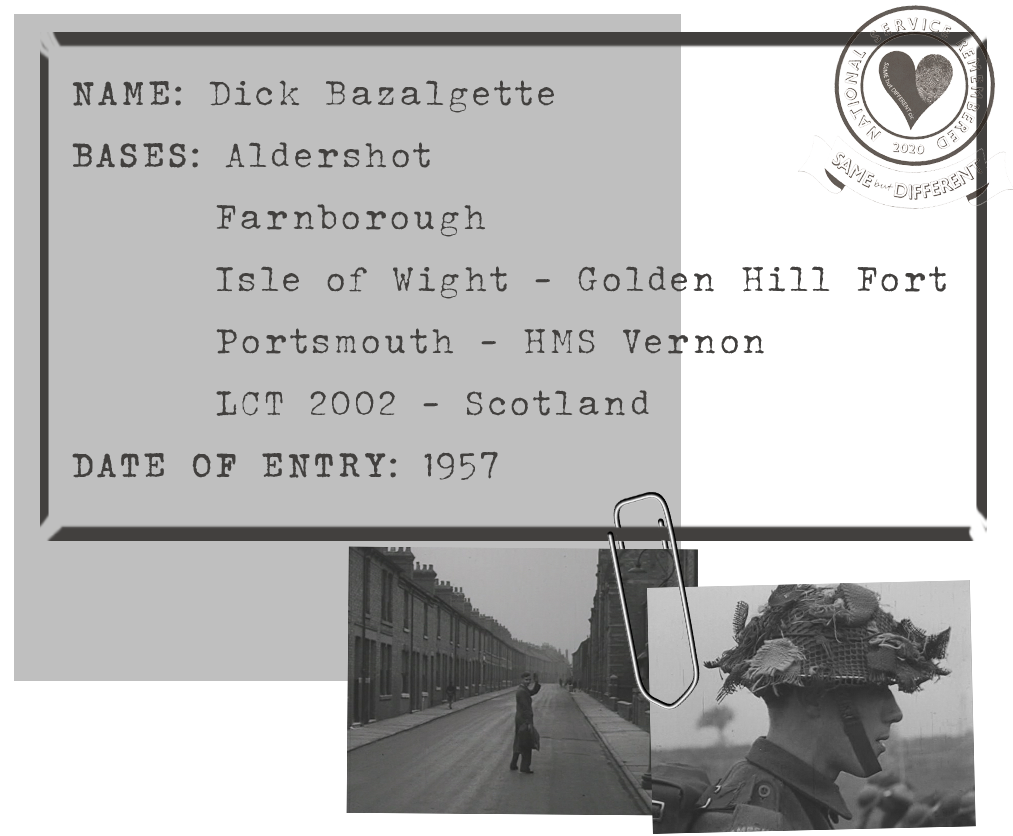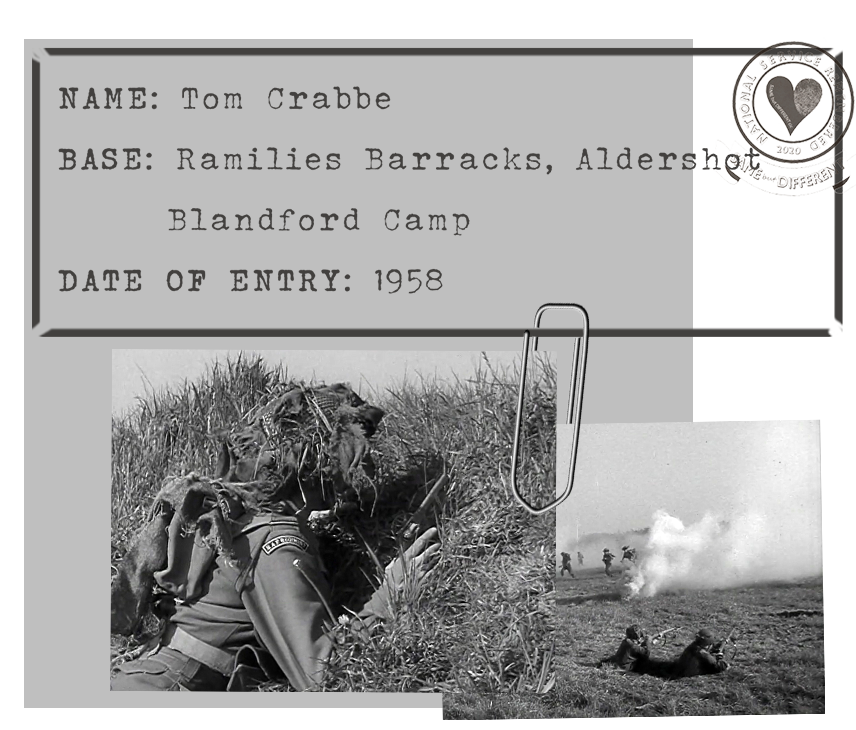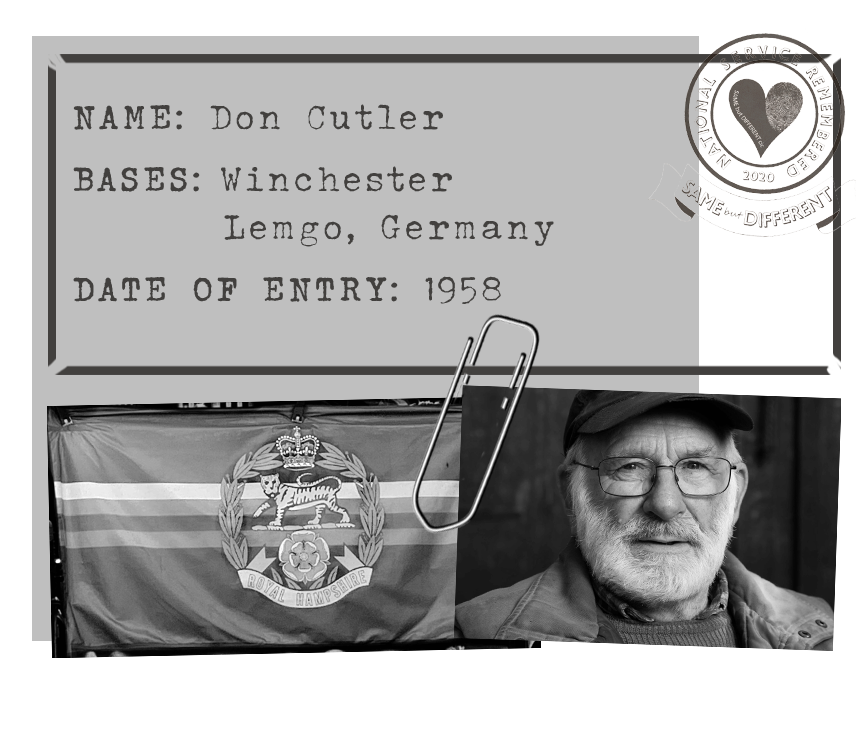I was born in 1936 so lived through the war years in Lowestoft, which was the most easterly town in the country.
When the invasion scare came late in 1940, with the possibility of landing locally, my father took me and my mother to the village of Broadway in Worcestershire for safety. But we only needed to be billeted with another family for a matter of weeks. I spent the rest of the war years in Beccles, Suffolk, again billeted in somebody else's house. I went to school there, at a convent, but I had a very peaceful life there really, without a single bomb being dropped, because Lowestoft, just 10 miles away, was getting very badly hit. In fact it was the most badly bombed towns of its size in the country because the Luftwaffe would come over and bomb Coventry and Birmingham and on their way back would fly over Lowestoft, dropping the odd spare bomb. My father served there on the Royal Observers Corps., on a cliff top post and so he was actually in the town throughout the war on his own.
My father was also the district Reporter for the East Anglian Daily Times. He worked from home because we lived in a company house. I only ever thought of going into newspapers journalism because I was brought up with the sound of my father typing his reports. My brother felt the same and so we both followed suit. I joined my father's paper at 17 and stayed there to complete my training in journalism, so my entry into National Service was deferred until I was 20. I joined up while I was working at Felixstowe and went home feeling apprehensive because I was going to Portsmouth to do my square bashing.
“It was the most badly bombed town of its size in the country because the Luftwaffe would come over and bomb Coventry and Birmingham and on their way back would fly over Lowestoft, dropping the odd spare bomb.”
We did parades and ground-work for about a month and then things got better and I was very pleased to be able to join the signals branch of the Navy. I was posted to the Royal Naval Signal School at St. Budeaux, Plymouth which had a very fine position looking down on the River Tamar.
Only 9 or 10 of us went into visual signals, and we learned Morse code, semaphore, flag recognition and had a great time. I had my 21st birthday there. And then the exciting thing was, at the end of our training period, the whole class, was to be posted to the Far East. I went home and prepared myself; mother was a bit upset to think she was losing her older son for a year, but it was fine.
It was quite an eye opener really, because a lot of us had led quite sheltered lives. When I joined up, there were Scousers, Geordies, Scots and Cornish, a great variety of young chaps with their different accents. And there was another reporter, working on the Coventry Evening Telegraph, so us two had something in common. We all got on very well.
Out in Far East, we were split up into what was called Fleet Pool so that we could serve wherever we were really needed as back up to the regular sailors.
When I first went out, I was quite surprised it took 3 days to fly out, because the aircraft was nothing like today's jet. We had one night in Nice and another in Karachi, with snake charmers working away by the roadside. Service families were on board and we were assigned to look after the children. In Singapore, I was posted to a cruiser, HMS Newcastle, to do some sea training for a month. It was a very interesting period and the ship sailed up to a Malay port, where we got a train ride up to Kuala Lumpur. We saw these places before they became holiday spots as they are today.
Having left the Newcastle, I was billeted at a Royal Naval signal station in Singapore called Kranji. We worked at the main naval shore establishment of HMS Terror. I served in the cryptographic office doing coding work and signals which was very interesting. We had lots of free time and I would get a bus into Singapore City. I used to enjoy the food and drink there. We could visit the China club which had a swimming pool. After time, I joined the frigate St Brides Bay, a Bay Class frigate, working up on the flag deck. It was a very friendly ship.
We had a trip to Hong Kong from Singapore which was very exciting. I had a good pal on board and we had leave over the Christmas and New Year period together so we managed to live ashore for a few days at the China Fleet Club and ventured across to mainland Kowloon. We took a train ride one day up to the border with Communist China. The ship did one or two manoeuvres around in local waters. I was made to realise just how well off we were when wandering around the quarter deck as the ship was anchored in the bay. I’d got a mug of tea in my hand and there was this family on a sampan. Gathered around, right at the stern of the ship, they were putting a net up and were catching all the potato peelings and other rubbish that was being shot down a chute. When they saw that I’d got this mug of tea, they were putting their hands up, desperately wanting a drink from it. So, I handed it down and they shared it around. Also, when we were ashore, the local children would gather around us begging for pennies. But the people who came over from China and had a sampan to live on were the fortunate ones because at least they had their own little floating home. On the return trip to Singapore, we anchored off the coast of Malaya, going ashore onto the beaches. It was probably not all that far from where the famous author, Leslie Thomas, wrote the book ‘The Virgin Soldiers’, because he was out there in 1946. That was some 10 years earlier when they were fighting the MNLA, the Communist troops.
“In Singapore, I was posted to a cruiser, HMS Newcastle, to do some sea training for a month. It was a very interesting period and the ship sailed up to a Malay port, where we got a train ride up to Kuala Lumpur. We saw these places before they became holiday spots as they are today.”
The most fortunate part of my posting was when I was drafted onto another frigate which was used as the Commander in Chief's barge.
It had a specially raised quarterdeck for entertainment and they needed extra communication staff on board. The CinC was doing a goodwill tour of British North Borneo which, today, would be a very expensive place to visit for holidays. We sailed along the entire coast of it. Kuching was the first port of call and we had 7 ports altogether including the Little Sultanate of Brunei.
When we were in harbour, Europeans who lived in the area would invite us to join them. I was entertained by a young Scottish couple who ran a rubber plantation in the jungle. They took us on an interesting ride through jungle areas and we had a nice lunch in their very fine house. I remember that they had just received a long-playing record of the My Fair Lady soundtrack, which they very proudly played on their grammar phone.
It was a peaceful period out there, but I didn't realise until afterwards that the majority of Borneo itself was actually Communist and we came very close to the border with the Communist part. We went out one day on a field trip, on a small ship’s boat and had to be very aware that there might be trouble. We had signalling at the ready to raise the alert if necessary, but in fact nothing happened.
“I was entertained by a young Scottish couple who ran a rubber plantation in the jungle... I remember that they had just received a long-playing record of the My Fair Lady soundtrack, which they very proudly played on their grammar phone. ”
I wish I’d joined up as a regular for 3 years, I enjoyed it so much.
I bought a nice camera and took lots of photographs, particularly of Hong Kong when the Bank of China was the tallest building. It was the first time I’d been abroad. It was a big culture shock but a wonderful experience really.
I didn't get homesick at all because I was a touch typist and had a typewriter at my disposal. I used to write reams and reams, long letters home and I was just so pleased to be out there. When I returned home, I was rather pleased because I took my father a Chinese silk smoking jacket and my mother a beautiful reversible silk over-jacket. I also bought a fairly cheap camera for my younger brother so I was thrilled to have these presents to give. And then I went back to my old job in Felixstowe.
I think it certainly helped me to grow up because I was a bit green around the gills. We were paid in local currency and it was only a few pounds a week but when we were on the ship we weren’t really spending any money because our food was provided. You could buy bars of chocolate at the NAAFI on board and we had our daily tot of rum. On their birthdays, the other chaps had everyone’s portion of rum and be flat out on the floor, completely sozzled. You were either T or G (temperance or grog) and I did end up having the rum. We had it just before lunch on an empty stomach and I did used to rather sway about.
The regular crew accepted the odd national servicemen on board.
I slept in a hammock which was actually quite good, because when the ship was at sea and it was a bit rough, the hammock would just swing and you would be fine. If you were on duty in the middle of the night, somebody would come along and shake your hammock and you had to struggle out. In the morning, you had to lash your hammock up tight enough so that it could be used as a buoyancy aid should you have to go overboard, if the ship was sinking. When we got to Hong Kong, the weather was so very pleasant, I actually slept on deck one night on my then camp bed.
I only seasick once on each trip out. I was lucky really because St Brides Bay was a fairly small ship, probably about 1800 tonnes. If I dare mention it, when other crew members had flown out from England to join us, they were horribly sick. I had to clean up the mess down in the heads, the toilet area. So if I could actually deal with that without being sick, I wasn't doing too badly.
I now live in Dorset. At 27, I thought it was time for a change so I applied for a job on Bournemouth Daily Echo newspaper. I ended up working there for 33 years until I retired.


